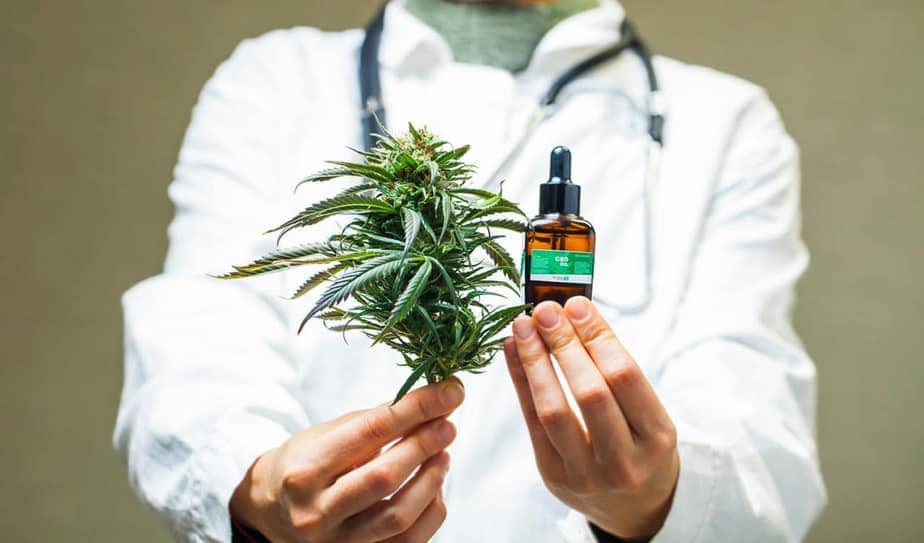
If you’ve been stressed lately, you’re not alone.
More Americans are stressed out than ever before. From tighter incomes to increased work pressures to a more divided political landscape to, of course, anguish over social media popularity, the pressure has become more than many of us can bear calmly.
Anxiety, it seems, has become a national epidemic.
In June of 2017, the New York Times featured a front-page article headlined “An Anxious Nation,” declaring that we have entered a troubling new “Age of Anxiety.”[1]
A year later, in August of 2018, the Washington Post repeated the claim, noting that a whopping 79% of Americans are frequently stressed.[2]
And it’s only getting worse.
The American Psychiatric Association recently found in its annual mental health survey that “Americans’ anxiety levels experienced sharp increases in the past year.”[3]
That applies across all age groups. Fully 38% of teenage girls suffer with an anxiety disorder, and on college campuses anxiety is now more common than depression.
We are so afflicted that the 2019 Gallup World Emotions Report finds that only Greece suffers higher anxiety levels than the US.[4]
Unsurprisingly, the number of prescriptions being written for anxiety drugs is also rising. CNBC reports a whopping 67% rise in prescriptions between 1996 and 2013.
What that huge increase means is that Americans, at around 5% of the world’s population, now consume 66% of the world’s psychological drugs. Think about it… a full 66% of the world’s psychological drugs. Let that sink in for a moment!
That increase has led to an unfortunate quadrupling of overdose deaths from anxiety drugs, including Xanax, Librium, Valium, and Ativan.[5]

Those drugs account for an annual $3.3 billion in sales, with drug makers including AstraZeneca (NYSE: AZN), Eli Lilly (NYSE: LLY), GlaxoSmithKline (NYSE: GSK), Pfizer (NYSE: PFE), and Sanofi (NASDAQ: SNY) leading the market.[7]
But do these drugs truly help?

Medications for the treatment of anxiety have become vastly less effective, and our tolerance to these drugs increases with continued use.
And that means over time, these prescription drugs do not do their job anymore.
In fact, a review published in the Journal of Anxiety Disorders in December of 2012 found that between one-third and one-half of all those who take anxiety medications fail to achieve remission of anxiety.[8]
The study’s authors ask, “Billions of research dollars later, have we hit a wall in the development and application of pharmacological treatments for anxiety?”
Lack of effectiveness isn’t the only problem, either. Benzodiazepine use is associated with addiction, cognitive impairment, psychomotor impairment, and rebound anxiety upon discontinuation.
Where antidepressants are prescribed for anxiety disorders, there is a 30–50% likelihood of side effects that include nausea, diarrhea, headache, insomnia, diminished sexual interest or performance, jitteriness, restlessness, and thoughts of suicide.
Clearly, there is an urgent need for better treatment options.
Says Esther Blessing of the New York University School of Medicine, “The substantial burden of anxiety-related disorders and the limitations of current treatments place a high priority on developing novel pharmaceutical treatments.”[9]
Cannabidiol, commonly known as CBD, may be the answer.
CBD is the active pain-relieving, non-psychoactive component of cannabis and hemp.
While cannabis-derived CBD is still not legal under Federal law, last year's Farm Bill removed hemp-derived CBD from the Controlled Substances Act.
Word is getting around that taking CBD is a good way to relieve anxiety.
Surveys show that most people who take CBD do so to treat either chronic pain or anxiety.[10]
And they say it works, thank you very much.
Among one study of 2,409 CBD users, the vast majority of those who used CBD to relieve anxiety reported that it worked “very well.”[11]

Now the clinical evidence in support of CBD for anxiety is piling up too.
One of the most crippling forms of anxiety is social anxiety disorder (SAD). It imposes a constant angst about how others see you, worry about others’ disapproval, and fear of rejection. Sufferers feel locked in a cell of solitude, cut off from social contact.
Unfortunately, SAD is notoriously hard to treat.[12]
Yet CBD seems to unlock the cell of solitude for SAD sufferers, allowing them to finally feel the bond of human connection that was denied them.
One groundbreaking study published in Neuropsychopharmacology found that CBD significantly reduces anxiety, cognitive impairment, and social discomfort in subjects suffering from SAD.[13]
In the study, subjects with social anxiety disorder were asked to speak in front of a large audience. Half of them had been given a placebo, and half took CBD.
Researchers compared anxiety levels between the two groups and found that “people who took CBD reported significantly less anxiety” than those who got the placebo.

In another trial, subjects were given either CBD or a placebo. Researchers then took brain scans, as well as asked for a subjective reading on individual anxiety levels.
What they found was that “CBD was associated with significantly decreased subjective anxiety.”[14]
Other anxiety disorders are just as likely to be relieved with CBD use.
One 2015 review published in Neurotherapeutics found that “evidence strongly supports CBD as a treatment for generalized anxiety disorder, panic disorder, social anxiety disorder, obsessive-compulsive disorder, and post-traumatic stress disorder.”[15]
The review concluded that “evidence indicates CBD has considerable potential as a treatment for multiple anxiety disorders.”
Virginia Thornley, a board-certified neurologist in Sarasota, Florida, says that CBD’s effects are similar to anti-anxiety medication or antidepressants.
Pritham Raj, an internist-psychiatrist in Portland, Oregon says that among cannabis components, “CBD is the best of all options in reducing anxiety.”
And Blake Pearson, a physician in Ontario, Canada says, “For those patients who have tried and failed with prescription anti-anxiety medications or want another option for other reasons, CBD is a potential alternative with a good safety profile that offers fewer negative side effects and fewer contraindications with other substances.”
More and more research is confirming CBD’s value in alleviating anxiety… More and more doctors are recommending CBD for anxiety… And more and more users are finding relief for both mild and acute anxiety with CBD… Giving investors more and more opportunity for substantial profits from CBD-focused companies.
With scores of players in the cannabis space and more entering every week, it can be hard to separate the wheat from the chaff.
The recent Federal Farm Bill legalizing the growing of hemp provides an opportunity to what could arguably be the fastest-growing segment of the cannabis market. While CBD derived from hemp is mostly being sold today at the State level, the US Food and Drug Administration (FDA) has yet to set any federal guidelines.
Here are the stocks to watch:
Charlotte’s Web Holdings (OTC: CWBHF / TSX: CWEB) — In early June 2019, Charlotte’s Web unveiled its newest CBD product line — hemp extract CBD gummies made from the company’s blue-ribbon hemp genetics. Along with their expanding line of hemp-derived CBD products, the gummies will be available in the company’s growing network of more than 6,000 locations across America, an increase of more than 60% from 2018.
Tilray (NASDAQ: TLRY) — Already a global leader in cannabis production, Canada-based Tilray is now aggressively pursuing the US hemp-derived CBD market after passage of the 2019 Farm Bill legalized CBD across all 50 states. The company recently inked an agreement with global brand licensor Authentic Brands Group to develop, market, and distribute CBD products in the US and around the world. Q1 2019 revenue increased 195% to $23 million.[16]
Elixinol (OTC: ELLXF) — An Australia- and Colorado-based hemp producer trading on the OTC, Elixinol USA manufactures and distributes CBD nutraceuticals worldwide. CBD sales represented about 84% of overall sales and grew by 119%, generating EBITDA of AUD$2.2 million (17% EBITDA margin).
TerrAscend (OTC: TRSSF / CSE: TER) — In December 2018, TerrAscend dove head-first into the CBD market with their purchase of Grander Distribution, an industry leader in hemp-derived wellness products that are distributed in about 10,000 retail locations worldwide. TerrAscend’s revenue jumped 192% in Q1 2019 from Q4 2018, to $14.6 million.
If you decide to try CBD to help alleviate anxiety, be sure and buy from a reputable company to ensure you’re getting a quality product.
And if you decide to invest in CBD companies, be sure to do your own due diligence before buying any stock.

Cynthia Berryman, Contributor
for Investors News Service
P.S. To discover more opportunities in the hottest sectors in North America, sign up now to the Financial News Now newsletter to get the latest updates and investment ideas directly in your inbox!
DISCLAIMER: Investing in any securities is highly speculative. Please be sure to always do your own due diligence before making any investment decisions. Read our full disclaimer here.
[1] https://www.nytimes.com/2017/06/10/style/anxiety-is-the-new-depression-xanax.html
[2] https://www.washingtonpost.com/business/2018/08/02/an-anxious-nation-barnes-noble-sees-surge-sales-books-about-stress/?utm_term=.d2d257739f22
[3] https://www.psychiatry.org/newsroom/news-releases/americans-say-they-are-more-anxious-than-a-year-ago-baby-boomers-report-greatest-increase-in-anxiety
[4] https://www.psychologytoday.com/us/blog/shouldstorm/201904/us-leads-in-the-worldwide-anxiety-epidemic
[5] https://www.cnbc.com/2018/08/02/antianxiety-drugs-fuel-the-next-deadly-drug-crisis-in-us.html
[6] https://www.theguardian.com/commentisfree/cifamerica/2011/mar/15/psychology-healthcare
[7] https://www.cnbc.com/2018/08/02/antianxiety-drugs-fuel-the-next-deadly-drug-crisis-in-us.html
[8] https://www.ncbi.nlm.nih.gov/pmc/articles/PMC3539724/
[9] https://link.springer.com/article/10.1007/s13311-015-0387-1
[10] https://www.ncbi.nlm.nih.gov/pmc/articles/PMC6043845/
[11] Ibid
[12] https://oxfordmedicine.com/view/10.1093/med/9780199739981.001.1/med-9780199739981-chapter-0007
[13] https://www.nature.com/articles/npp20116?foxtrotcallback=true
[14] https://www.ncbi.nlm.nih.gov/pubmed/20829306
[15] https://www.ncbi.nlm.nih.gov/pmc/articles/PMC4604171/
[16] https://seekingalpha.com/article/4264100-tilray-inc-tlry-ceo-brendan-kennedy-q1-2019-results-earnings-call-transcript